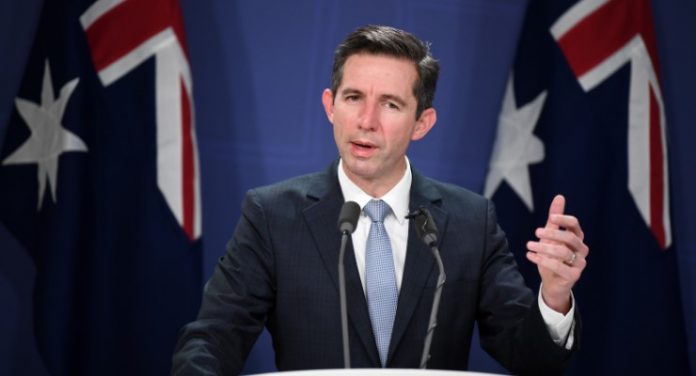If you had to say what the Morrison government stands for, you would be fighting, right? Looking back on the time since 2018, when Scott Morrison became Prime Minister, I can only make two statements of principle that his administration could have really puffed up.
The first is sovereignty, which is reflected in the government’s continued devotion to the idea of sovereign borders and in Morrison’s peculiar romance with the idea that Australia’s fate will be met in Australia alone. This is expressed in different contexts, be it trade, foreign policy, climate change or COVID-19.
The second is the rule of law. It is just a new appendix for the government and was only used by the government to defend the alleged sexual offenses of its own members. However, it was shouted loudly and often enough to qualify as a mantra.
So there it is – a bit colorful, but you can put something together from the broken pieces. As a coherent explanation of the ideology, it would be that Australia is a self-contained sovereign nation of laws that the Morrison administration seeks to uphold. Burkean conservatism with a touch of nationalism.
In theory, the key to this philosophy is that the state organs (enshrined at the federal level by the Constitution and Her Majesty’s grace at the state level) are sovereign in their right and power to make laws that we must and obey through our citizenship we are protected by the rule of law from their arbitrary or unequal application.
There is one assumption that must be made in order for this orderly arrangement not to collapse. Because you may find that the only thing that sustains it is our willingness to go along with it.
It is believed that those entrusted with the keep keys hold a vague trust in the rule of law. Parliament has immense power to legislate; Judges who interpret them, settle disputes and punish guilt; Ministers to exercise the power of the state in a variety of ways, including by spending its money.
You may see where I’m going with it. If power does not come with responsibility, at least in appearance, then it has no legitimacy whatsoever, and the proletariat will eventually notice.
Which brings us to Simon Birmingham, the member of Morrison’s cabinet who you think will be the least likely to blow up democracy. Addressing the latest and greatest of his administration’s epic adventures in the corrupt pig barrel, the $ 660 million parking lot fund that disappeared into coalition seats just before the 2019 elections, Birmo broke the usual defensive playbook with the refreshingly honest – it didn’t become any Rules broken – line: “The Australian people had their chance and re-elected the government.”
It didn’t have the gritty eloquence of Ned Kelly’s “That’s Life”, but it had full marks for chutzpah. If he had flipped the Australian electorate, it would have meant no other meaning.
I suspect Birmo would never have considered saying anything so outrageously arrogant and derogatory had it not been for serving under Morrison, for whom attitudes are first and second nature. That tells us something profound about this government: We no longer care what we think. It doesn’t even pretend anymore.
Which reminds me of another ruler who had a similar conception of his role in the order of things and cared no more about what it looked like.
King Charles I, who ruled England from 1625 to 1649 (and would have ruled us if we hadn’t been invaded yet), was one of the most prominent proponents of a theory of sovereignty and the rule of law known as the divine right of kings . As his father, King James I, put it: “[The monarch is] the absolute master of the life and property of his subjects; his actions are not the subject of investigation or dispute, and no wrongdoing can ever warrant opposition. “
Justice was divine because the king was “seated on the throne of God”.
Most ancient and feudal societies felt the same way, or at least were forced to do so, of their monarchs. From there comes the idea of ”absolute” monarchy to steer it in a more secular direction; Sovereignty, the right of the state to rule itself and to make laws that the people must obey, literally resides in the person of the king or queen. Since this person is indivisible from the power he wields, it would be a logical impossibility for him to be subject to the laws that he enact.
Or so that’s what Charles thought until the moment his head was removed. So also Louis XVI. of France, Nicholas II of Russia and Gaddafi of Libya.
Charles’ father had published another, more famous book, the King James Version of the Bible. He probably wasn’t self-consciously ironic when translating Proverbs 16:18: “Pride goes before doom, and a haughty spirit before fall.”
The thing is, they never see it coming.
It’s back 72 hours only.
Pick what you will pay for a year of Crikey.
Subscribe today and save up to 50% a year of Crikey or take a little more to get one of ours Limited edition crikey merch packs.
Hurry up, ends midnight this Thursday at midnight.

Peter Fray
Editor in Chief of Crikey
Save up to 50%





